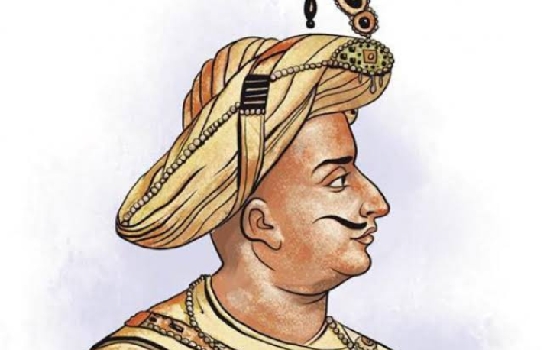Poets are an asset to the society. Many a poets have vindicated the age-old saying, ‘Pen is mightier than the sword’, by challenging norms and addressing grievances. Poems are synonymous to eye-openers. Reality-checks via poems could be the upcoming recipe to mend a society that prevails on undercurrents of hypocrisy and insensitivity.
Mafazah Sharafuddin, the youngest among the three children of Sharafuddin Soofi and Sameena Afshan couple, is a teenage poetess, whose formal debut into the literary world took place with the recent release of the anthology of poems Labyrinths of Emotions. It is a compilation of poems she wrote when she was 13 and 14 years old. It spans over a variety of subjects including social issues, mental health and general struggles faced by adolescents. She says that her poems are mainly expressions of her thoughts that she can’t put into coherent words.
Mafazah Sharafuddin is now a grade 11 student at a private college in Mangaluru and aspires to become a clinical psychologist. Apart from writing poems, she is passionate about reading. She is multi-talented with interest in fine art and public speaking as well. Here are a few things Mafazah Sharafuddin said in her exclusive interview to coastaldigest.com.
CD: What is the importance of poetry in today’s society?
MS: In my opinion, there’s a grace to poetry that no other form of writing has. I think poetry challenges you to look for meaning in mundane, everyday things and that’s the sort of observation and contemplation we need.
CD: Do you have a cause that is close to your heart or a particular theme that structures your poems?
MS: Well, not one thing in particular. I’m a feminist. I also stand against racism and colorism. The condition for women all over the world hasn’t been ideal for a very long time. In India especially, we can see the whole hype on fairness’ creams and other products. We are basically told that dark equates ugly. In Hollywood too, we can see that the protagonists are mostly white. The patriarchy perpetuates these ideals for women to live by. That a women must have a voluptuous body, yet a skinny waist, that a woman should rip her body hair off in a very painful procedure on a monthly basis to look ‘attractive’. In my opinion, it shouldn’t be necessary to fight for women’s rights or black rights. People shouldn’t be deprived of opportunity based on trivial aspects of their existence.
CD: Do you touch upon social issues that our society is grappling with, in your poems?
MS: I like to believe that I write to challenge stereotypes and norms that society pushes on people. I feel very strongly against the social culture that tells you what is ‘normal’.
CD: The poems you write convey disdain to certain social constructs. What is it that you are dismayed with and what made you turn to writing poems?
MS: The truth is that when I started writing I was just eight-year-old, meaning I didn’t have an understanding of social issues and such. But I read a poem I wrote from then, saying something like dark spots don’t make you any less beautiful. Part of the reason I’m so against these so called social constructs is, I think, remnants of that childish stubbornness that refuses to accept what I didn’t understand. Then again, there is the part of me that grew up and saw how much damage these mindsets cause in the real world, and I say without a doubt that I will stand against every illogically discriminating thing I come across. As for why I turned to writing, I’ve always been fond of literature, poetry in particular, and when I was a child I chose poetry as a way to express myself, which I continue to do today.
CD: What got you writing? What about poets that inspired you, do you have any?
MS: My primary school teacher is actually the one who first asked me to write. More than people, however, books are what kept me writing. Poems like The Haunted Palace by Edgar Allan Poe and My Beth by Louisa May Alcott are what I recite under my breath when I’m distressed. I think literature has played such a huge role in creating the person I’m today, that I can say that it’s quite possible I wouldn’t have this book published without it.
CD: Are you planning to write anything other than poetry?
MS: I do plan on writing prose but I get too caught up in detail to follow a complex plot. Maybe in a few years my mind will mature enough for it.
Also Read: Mangaluru: Young poetess Mafazah Sharafuddin’s Labyrinths of Emotions released




Comments
good luck
Impressive achievement at an early age. she made mangaloreans proud. at a time when young girls and boys spend time on social media, smart phone and romance, this girl has exhibtted a rare emotional maturity. A leader in the making.
Hahhaha… initially when I clicked on the link I noticed a quote from Salman Rushdie. It was like ಶಿವ ಪೂಜೆಲಿ ಕರಡಿ ಬಂದ ಹಾಗೆ… I felt pity for both Rushdie and the hijabi poetess. But when I refreshed the story Rushdie’s quote got disappeared. I realized that CD team got threats from Khumeini’s followers from Iran. Anyways congrats to the young girl. Let her develop enough courage to write against social menace like love jihad, land jihad, media jihad,…. and last but not least the poetry jihad :p
MashaAllah...young talent. Needs full support from society so that she in turn can encourage others to follow the steps. Good Luck
Happy women’s day Ms Mafazah Sharafuddin! Congrats for the deubut book! Where it's available in Udupi?
Add new comment